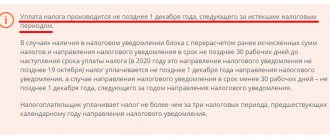Procedure and terms of execution of criminal punishment in the form of a fine
One of the types of criminal punishment is a fine - a monetary penalty imposed within the limits provided for by the Criminal Code of the Russian Federation.
The fine can be imposed either as a primary or as an additional punishment.
The amount of the fine is determined in the form of a certain sum of money or in the amount of wages or other income of the convicted person, or is calculated as a multiple of the value of the item or the amount of commercial bribery, bribe or the amount of illegally transferred funds and (or) the cost of monetary instruments.
The procedure and timing of execution of criminal punishment in the form of a fine are regulated by criminal executive legislation.
In accordance with Part 1 of Art. 31 of the Criminal Executive Code of the Russian Federation, a person sentenced to a fine is obliged to pay the fine within 60 days from the date the court verdict enters into legal force.
If minors are convicted, a fine may be collected from both them and their parents or legal representatives.
At the same time, if the convicted person is unable to pay the fine at once, he can apply to the court with a request to pay the fine in installments for a period of up to 5 years.
When deciding on a deferment, the court takes into account the severity of the crime committed, the financial situation of the convicted person and his family, the real possibility of paying a fine based on wages and other income, and other circumstances that affect the solvency of the convicted person.
If a convicted person is given a fine with installment payment, he is obliged to pay the first part of the fine within 60 days from the date the court decision enters into legal force. The convicted person must pay the remaining portions of the fine monthly no later than the last day of each subsequent month.
A convicted person who fails to pay a fine or part of a fine within the time limits established by law is considered to be maliciously evading payment of the fine.
Failure to pay a fine imposed as a main punishment entails consequences that are different from non-payment of a fine imposed as an additional punishment.
In relation to a convicted person who maliciously evades payment of a fine imposed as the main punishment, the bailiff sends to the court a proposal to replace the fine with another type of punishment.
The court, with the exception of cases of imposing a fine in an amount calculated on the basis of the value, a multiple of the value of the item or the amount of commercial bribery, replaces the fine with another punishment, with the exception of imprisonment.
In the case of malicious evasion of payment of a fine in an amount calculated on the basis of a multiple of the value of the item or the amount of commercial bribery or bribery imposed as the main punishment, the fine is replaced by the court with a punishment within the limits of the sanction provided for by the relevant article of the Special Part of the Criminal Code of the Russian Federation. In this case, the imposed punishment cannot be conditional.
In relation to a convicted person who maliciously evades payment of a fine imposed as an additional punishment, the bailiff collects the fine forcibly, and the recovery is applied primarily to the convicted person’s funds, including those in banks.
If the convicted person does not have the funds to pay the fine, the penalty is applied to the property belonging to him, and if the convicted person has no or insufficient property, the penalty is imposed on the wages and other types of income of the convicted person.
In accordance with Part 4 of Art. 32 of the Criminal Executive Code of the Russian Federation, a convicted person who maliciously evades serving his sentence, whose whereabouts are unknown, is put on the wanted list.
Court fine under Art. 76.2 of the Criminal Code of the Russian Federation: where are we going?
Judicial statistics, as well as the Review of the Supreme Court of the Russian Federation dated July 10, 2019, indicate that the norm has taken root, is working, and is very productive. At the same time, comparison of statistics according to Art. 76 and art. 76.2 of the Criminal Code of the Russian Federation shows a sharp increase in the percentage of court cases that end not in the reconciliation of the parties, even in cases where there is a victim, but in the imposition of a court fine. It is worth noting that a judicial fine is often applied in cases where the main object is the order of economic activity, the interests of the civil service, the order of management, justice, the constitutional system, public safety and public morality, environmental safety and the security of computer information.
At the same time, the courts successfully apply the article when a person commits a formal crime. Several decisions even included the following wording: “At the same time, based on the meaning of the provisions of criminal law, the court believes that the absence of a victim in a criminal case and the absence of harmful consequences from the committed act, which has the formal corpus delicti, is not an absolute obstacle to terminating the criminal case.” cases on the grounds provided for in Art. 25.1 Code of Criminal Procedure of the Russian Federation Art. 76.2 of the Criminal Code of the Russian Federation. Consequently, the termination of a criminal case with the imposition of a judicial fine is permissible for some crimes with formal elements, based on the totality of factual circumstances in a particular case, since there may not be any consequences as such, but the guilty person can take measures to make amends for the harm before society and the state.” The accused repented, admitted her guilt in committing the crime, and transferred 5,000 rubles to a charity organization that helps children with cancer. In this case, the court regarded these actions of the accused “as her taking measures to make amends for the harm before society and the state.”
Please note the fact of the accused’s repentance and gesture of assistance in favor of a charitable organization. This is a recent trend. This story was found in 40% of the decisions studied.
To be brief, in the application of Art. 76.2 of the Criminal Code of the Russian Federation, I now see 2 main problems:
1. Competition Art. 76 and Art. 76.2 of the Criminal Code of the Russian Federation.
2. The problem of determining the damage or harm caused by a crime.
In order.
1. It is more interesting to apply a judicial fine for obvious reasons: both money goes to the treasury, and it seems to be “punished” financially, and the measure can be canceled if the fine is not paid. The amounts, however, are not that large. From 5,000 rubles in cases of theft causing significant damage to 200,000 rubles in cases, for example, of illegal organization of gambling. The mind does not want to put up with conditional exemption from criminal liability at all, but gets used to it, comparing it with the Dutch and Belgian transactions, which I actually wrote about in my dissertation.
I believe that even in cases where it would be possible to reconcile with the victim, defense attorneys sometimes do not take risks and immediately ask for a court fine, just to be sure. Although for theft, the percentage of release from criminal liability with reconciliation with the victim is higher than with the imposition of a court fine.
But for the accused himself, this direction of judicial practice is unfair; in fact, he compensates the damage twice: to the victim and to public relations. That is, he pays twice, since the main part of compensation for damage and compensation for harm occurs in monetary terms. Meanwhile, reconciliation with the victim in accordance with Art. 76 of the Criminal Code of the Russian Federation provides for compensation for damage only to the victim.
And for the victim, the situation with paying a fine may also turn out to be unprofitable: in cases where the damage or harm is partially compensated and is insufficient in the opinion of the victim, the court still releases the perpetrator from criminal liability. There were also such decisions.
The idea arises that we are in for a gradual transition from simple reconciliation with the victim to the construction of a judicial fine or, as it is called in European countries, a transaction. In general, this position seems logical and fair, however, it requires clarification and, possibly, exclusion or modernization of Art. 76 of the Criminal Code of the Russian Federation in the article on mediation.
More details: Dissertation for the academic degree of Candidate of Legal Sciences Ya.M. Matveeva. Institute "Institute for exemption from criminal liability in Russian criminal law: modernization and search for alternative ways to resolve criminal legal conflict." https://disser.spbu.ru/disser2/disser/Matveeva_dissertaciya.pdf. pp. 159-167.
2. The problem of determining damage or harm.
When considering criminal cases on charges of committing crimes with material elements, where criminal consequences are obvious and their monetary or other equivalent can be determined, as a rule, problems with compensation for damage or making amends for harm do not arise. For the most part, judges do not indicate the amount of compensation or damage; it is important to state this fact: the damage has been smoothed out or the damage has been compensated, the victim has confirmed.
The approach of the judges is very interesting, in whose decisions the following logic was found: “the accused actively contributed to the discovery of the crime, repented, ceased to be socially dangerous, thereby making amends for the harm caused to public relations.” Sorry, but this is Art. 75 of the Criminal Code of the Russian Federation - active repentance. What does a court fine have to do with it? And if in 2021 the appeal developed such cases due to the lack of fact of compensation for damage (making amends), then in 2021 there are almost no such cases.
But I understand the law enforcer: there are not many options. For example, formal composition. There is a petition from the investigator or the accused himself (his defense attorney), the prosecutor is not against it, there is no victim, the crime was committed for the first time, of minor or moderate gravity, positive characteristics. What should I do? So judicial practice closes the gap in the law, which is generally wrong.
Solution: changing the wording of the article so that compensation for damage and reparations are mandatory in cases where damage or harm is caused. We are not talking now about the classical understanding of socially dangerous consequences, which in general exist in any crime, since in principle they destroy social relations. We are talking about real damage and harm. Otherwise, the decisions of the courts of first instance do not look very far-fetched. Although the very basis for exemption from criminal liability with the imposition of a judicial fine looks very reasonable in crimes with a formal composition and where there is no procedural victim.
The extended version of the article will be accurate, with recommendations for changes in legislation and practice.
Explanations of the Supreme Court of the Russian Federation on the imposition of a fine
Issues of the practice of imposing criminal punishment in the form of a fine are explained in paragraphs 2 - 7 of Resolution of the Plenum of the Armed Forces of the Russian Federation dated December 22, 2015 N 58 “On the practice of imposing criminal punishment by the courts of the Russian Federation.”
The specifics of imposing a fine on minors are explained in paragraph 21 of Resolution of the Plenum of the Supreme Court of the Russian Federation dated 02/01/2011 N 1 “On the judicial practice of applying legislation regulating the specifics of criminal liability and punishment of minors.”
The features of the operative part of the conviction in terms of sentencing in the form of a fine are explained in paragraph 30 of the Resolution of the Plenum of the Supreme Court of the Russian Federation dated November 29, 2016 N 55 “On the judicial verdict”.
Fine as primary and additional punishment
A fine can be applied as either a primary or an additional form of punishment.
As the main type of punishment, a fine is imposed if this type of punishment is enshrined in the sanction of the applicable article of the Special Part of the Criminal Code of the Russian Federation, as well as in the presence of exceptional mitigating circumstances (Article 64 of the Criminal Code of the Russian Federation).
As an additional type of punishment, a fine is imposed only in cases provided for by the relevant articles of the Special Part of the Criminal Code of the Russian Federation. If a fine is assigned as the main punishment for a crime, it cannot be assigned as an additional punishment for the same crime.
When imposing a fine as the main punishment on a convicted person in custody, the court has the right, taking into account the period of detention, to either completely release such person from serving this sentence or mitigate it (Part 5 of Article 72 of the Criminal Code of the Russian Federation). In case of mitigation of the punishment, the amount of the fine may be lower than the minimum limit established by the sanction of the relevant article of the Special Part of the Criminal Code, but not lower than the minimum limit established by Part 2 of Art. 46 of the Criminal Code of the Russian Federation for a specific method of calculating the fine.
Simultaneously with the fine imposed as the main punishment, it is allowed to impose an additional punishment for the same crime in the form of deprivation of the right to hold certain positions or engage in certain activities, as well as deprivation of a special, military or honorary title, class rank and state awards, subject to compliance with the rules of application these types of punishments established by Part 3 of Art. 47 and Art. 48 of the Criminal Code of the Russian Federation.









